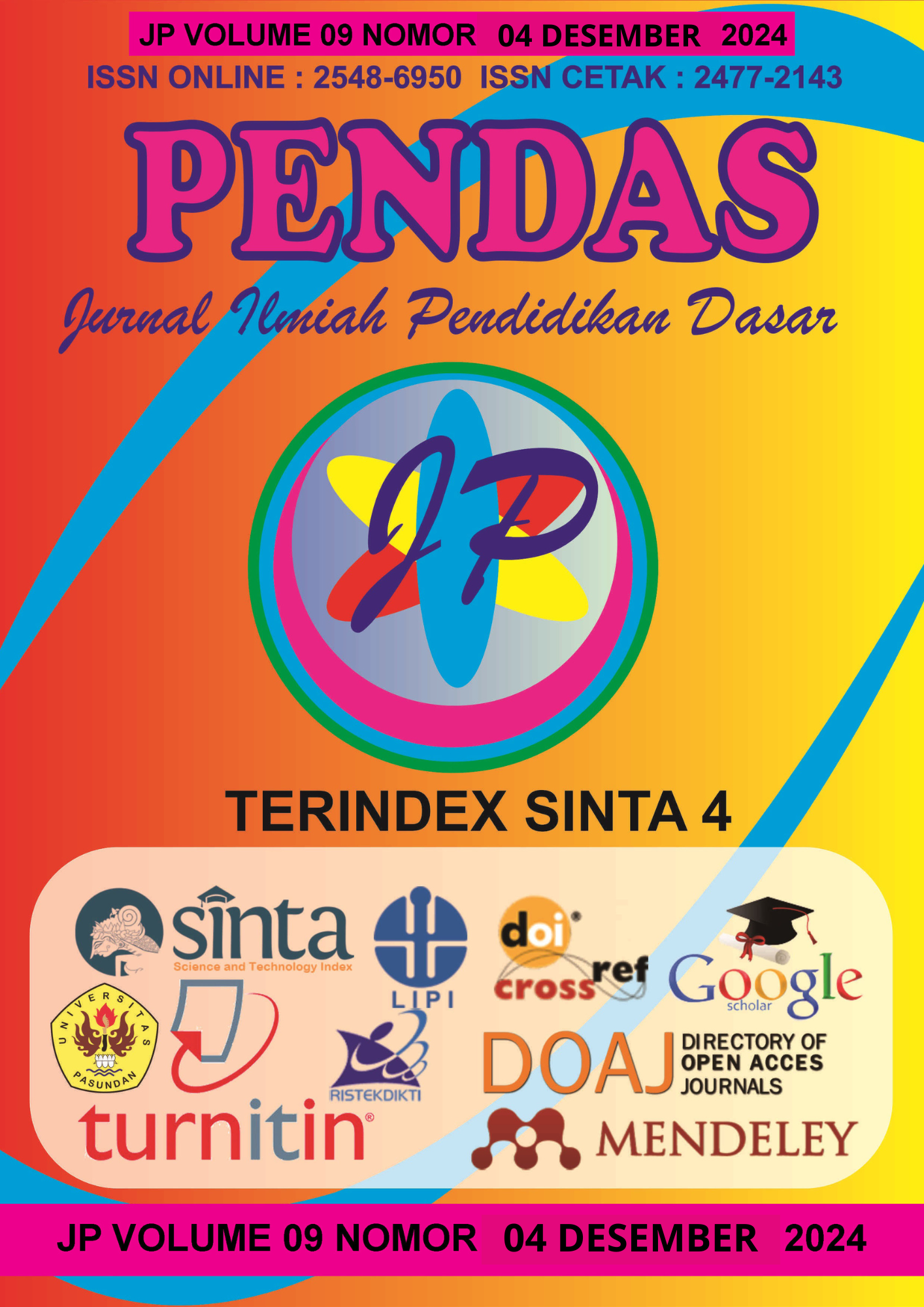KOMPETENSI PEDAGOGIK GURU DAN PBL : DAMPAKNYA TERHADAP KETERAMPILAN BERPIKIR KRITIS DAN KREATIF SISWA SEKOLAH DASAR
DOI:
https://doi.org/10.23969/jp.v9i04.21584Keywords:
Teacher Pedagogical Competence, Problem Based Learning, Critical Thinking, Creative ThinkingAbstract
This research explores the impact of teacher pedagogical competence on the effectiveness of the project-based learning (PBL) model in improving primary school students' critical and creative thinking skills. Using a qualitative approach, data was collected through in-depth interviews with teachers, classroom observations, and analysis of related documents. The research results show that teachers who have good pedagogical competence can design and implement PBL effectively, thereby encouraging students' active involvement in the learning process. Conversely, a lack of knowledge and training about PBL can hinder the application of this method and reduce student learning outcomes. This research emphasizes the importance of continuous professional training programs for teachers to improve their competence. Thus, increasing teacher pedagogical competence is expected to produce students who not only have academic knowledge, but also the critical and creative thinking skills needed to face future challenges.
Downloads
References
Astutik, P., & Hariyati, N. (2021). Peran Guru Dan Strategi Pembelajaran Dalam Penerapan Keterampilan Abad 21 Pada Pendidikan Dasar Dan Menengah. Jurnal Inspirasi Manajemen Pendidikan, 9(3), 621.
Baker, R. (2019). The Role of Teachers in Project-Based Learning: A Framework for Educators. Educational Research Review.
Endang Indarini. (2024). Dampak Model Problem Based Learning Terhadap Keterampilan Abad 21 (4 C) di Sekolah Dasar. Satya Widya, 40(1), 73–87. https://doi.org/10.24246/j.sw.2024.v40.i1.p73-87
Hikmah, F., & Radiansyah. (2023). Implementasi Model PBL Dan Pendekatan TPACK Media Interaktif Meningkatkan Kemampuan Berpikir Kritis Serta Hasil Belajar. Jurnal Pendidikan Sosial Dan Konseling, 1(3), 288–296. https://jurnal.ittc.web.id/index.php/jpdsk/article/view/237%0Ahttps://jurnal.ittc.web.id/index.php/jpdsk/article/download/237/238
Hmelo-Silver, C. E. (2004). Problem-Based Learning: What and How Do Students Learn? Educational Psychologist, 39(2), 99-102.
Kusumawati, I. T., Soebagyo, J., & Nuriadin, I. (2022). Studi Kepustakaan Kemampuan Berpikir Kritis Dengan Penerapan Model PBL Pada Pendekatan Teori Konstruktivisme. JURNAL MathEdu, 5(1), 13–18.
Mansor, M. F., & Kassim, N. L. (2020). The Impact of Teacher Pedagogical Competency on Students’ Engagement in Project-Based Learning. International Journal of Instruction, 13(1), 65-78.
Rahayu, I., Nuryani, P., & Hermawan, R. (2019). Penerapan Model PBL Untuk Meningkatkan Keterampilan Berpikir Kritis Pada Pelajaran IPS SD. Jurnal Pendidikan Guru Sekolah Dasar, 4(2), 93–101.
Sari, R. A., & Indah, N. (2021). Challenges in Implementing Project-Based Learning in Elementary Schools: Teachers’ Perspectives. Journal of Education and Practice, 12(4), 45-53.
Sri Wahyuni. (2006). Mengembangkan Keterampilan Berpikir Kritis Siswa melalui Pembelajaran Ipa Berbasis Problem-Based Learning. Program Studi Pendidikan Kimia PMIPA FKIP-UT, 23, 1–10. file:///D:/Download/fmipa201146.pdf
Downloads
Published
Issue
Section
License
Copyright (c) 2025 Pendas : Jurnal Ilmiah Pendidikan Dasar

This work is licensed under a Creative Commons Attribution 4.0 International License.



















